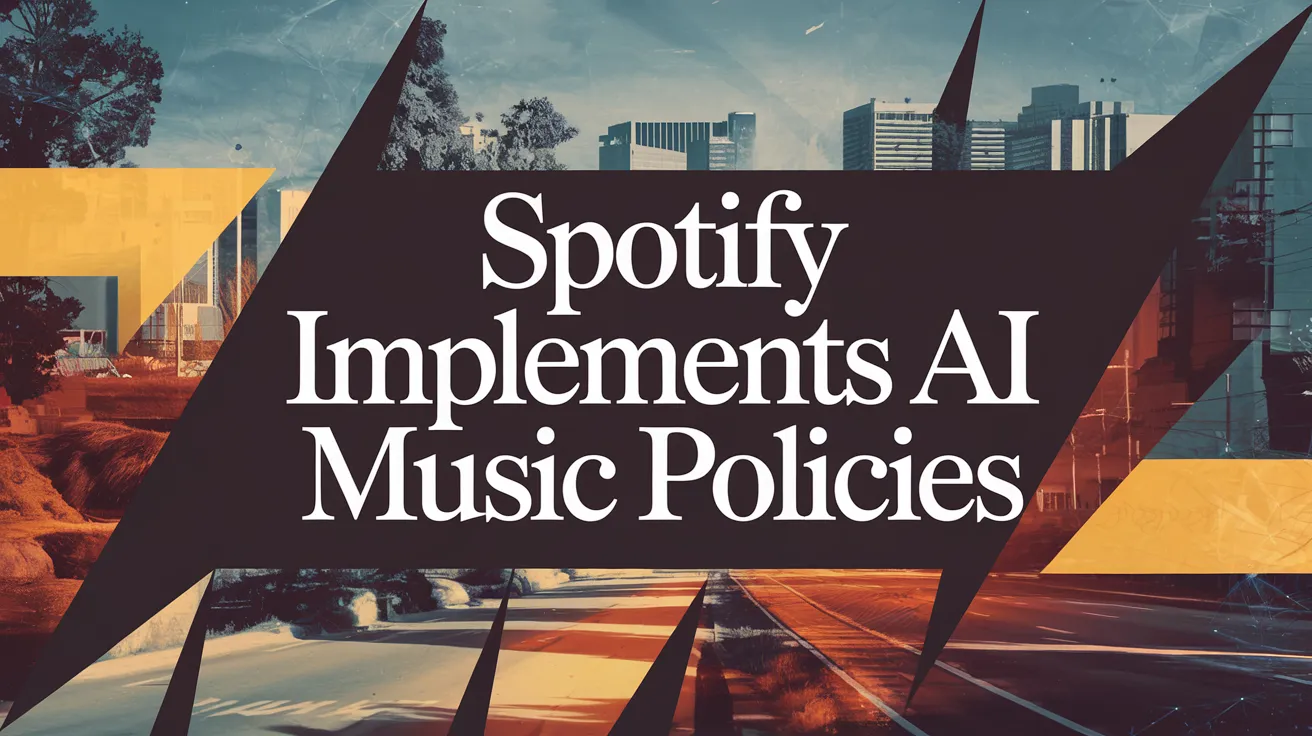Spotify Implements AI Music Policies

Spotify is set to strengthen AI protections for artists and music producers with a series of measures aimed at ensuring authenticity in the music streaming space. In a recent announcement made via a “For the Record” post on its website, the company revealed it had removed a staggering 75 million “spammy” tracks from its platform.
The post highlights the rapid advancements in generative AI technology, which, while offering incredible new creative avenues for many artists, has also opened the door for misuse and confusion. As Spotify points out, “At its best, AI is unlocking incredible new ways for artists to create music and for listeners to discover it. At its worst, AI can be used by bad actors and content farms to confuse or deceive listeners, push ‘slop’ into the ecosystem, and interfere with authentic artists working to build their careers.”
This sentiment underscores the need for transparency and protection in a rapidly evolving industry. Spotify emphasizes that it is critical to address the darker sides of generative AI, which threaten to dilute the genuine contributions of artists. By prioritizing robust protections, Spotify aims to establish a future where artists have control over how they incorporate AI into their creative processes.
Among the specific measures announced, a new impersonation policy has been introduced to bolster protections against unauthorized vocal impersonation, particularly concerning AI voice clones. As stated by the company, “Vocal impersonation is only allowed in music on Spotify when the impersonated artist has authorized the usage.” This level of authorization will help tighten the reins on how AI technologies can be utilized.
In addition to this, Spotify is ramping up investments aimed at preventing fraudulent uploads that misrepresent an artist’s work across streaming services. The company is actively testing new prevention tactics with top artist distributors to counter imposter uploads at the source. These moves indicate that Spotify is not only aware of the present issues but is also proactive in finding solutions to combat them.
Another significant aspect of Spotify’s new approach is the implementation of a spam-filtering system designed to combat mass uploads, duplicated content, and other types of detrimental practices that have become more prevalent with the accessibility of AI tools. By identifying and tagging problematic uploads, Spotify aims to maintain a high standard of quality for its listeners.
Furthermore, the introduction of AI disclosures for music with industry-standard credits aims to enhance transparency regarding the use of AI in music production. Spotify acknowledges that the role of AI in music is nuanced and believes that artists should not feel compelled to classify their work as merely “AI” or “not AI.” This flexibility aligns with the varying ways artists might choose to incorporate AI into their creative workflows.
Despite these stringent measures, it is essential to recognize that Spotify continues to embrace AI in other areas, such as accepting more AI-narrated audiobooks through its partnership with ElevenLabs. The balanced approach could foster innovation while simultaneously protecting artists, a crucial element in maintaining a healthy ecosystem.
Industry responses to these new measures have largely been positive. Major labels and music industry professionals welcomed Spotify’s commitments, marking them as essential steps consistent with the company’s principles rooted in artist support. For instance, a spokesperson from Universal Music Group articulated the need for protective measures, emphasizing, “These measures include content filtering; checks for infringement across streaming and social platforms; penalty systems for repeat infringers.” The sentiment exists that these actions will not only secure artists’ interests but also enhance the overall quality of music available to fans.
In summary, Spotify’s strides toward regulating AI and enhancing the user experience on its platform signify a comprehensive response to both the opportunities and challenges presented by generative AI. By implementing these policies, Spotify aspires to protect the integrity of the music industry while still harnessing the creative potential of AI for artists and producers alike.